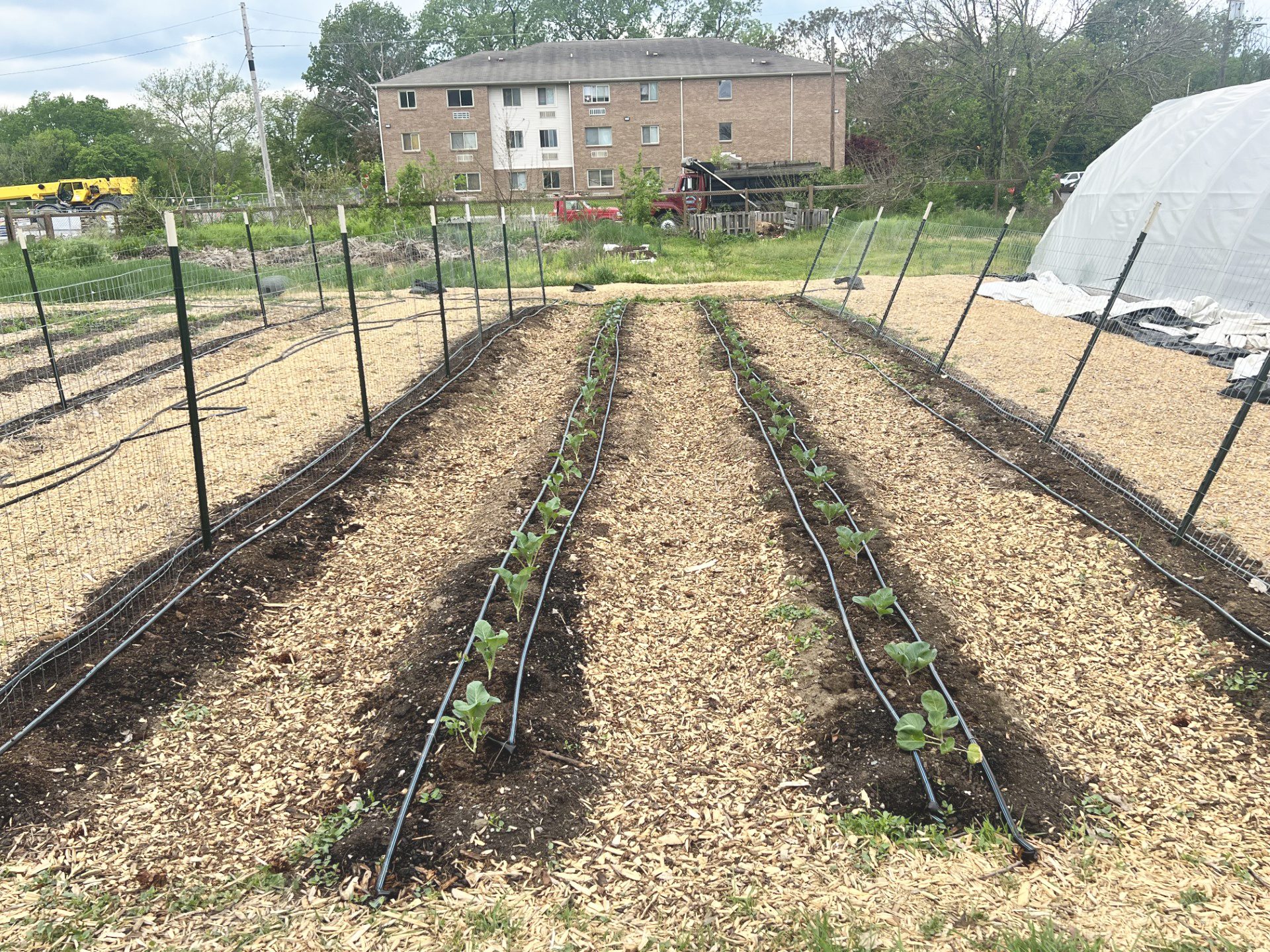Since its inception in 2016, Flanner Farms has worked to end food deserts on the Northwest side of the city, and nearly seven years later, the program continues to uphold that standard.
Today, the farm produces nearly 40,000 pounds of fresh produce annually which is distributed to Cleo’s Bodega, Flanner House’s Child Development Center and a few restaurants around the area. Flanner Farm’s goal is to provide healthy, affordable, culturally appropriate food to the community. A few plants grown on the farm include eggplants, sweet potatoes, corn, mustard greens, collard greens and green beans.
Currently, both of Flanner Farms’ commercial greenhouses are under construction. However, a ribbon cutting for their reveal is scheduled to take place on Juneteenth on the campus of Flanner House.
Flanner Farms is one of four programs under Flanner House’s Food Justice Program and along with their efforts to end food deserts in their neighborhood, Flanner Farms has also been able to show community members the importance of growing their own garden by allowing people to volunteer on the farm and hosting events to show them how to create cost-effective gardens outside of their homes.
To find out more information on how to volunteer, click here.
Flanner Farms manager Nick Selm emphasized that it is important community members grow their own food due to how “abusive” and “draining” industrial agriculture is.
“Sure, it produces food but at a very high cost,” Selm said.
Selm also believes “our communities will be stronger if more people are growing their own food,” which is why Flanner Farms gets the children at the CDC involved with farm life. He observed that when people usually have a negative experience eating vegetables or being outdoors, it can morph their views of not wanting to create their own garden.
The two-acre farm wraps around the playground where the children play, which allows them to be able to see food grow, something the CEO of Flanner House Brandon Cosby wants to become more normalized.
“As these little ones are growing up, the accessibility … becomes normal,” Cosby said.
Although lack of accessibility plays a factor in most food deserts, Cosby said affordability plays an even bigger role.
“The fact that you can drive three to five miles from here and there’s a grocery store on every corner, but as you get deeper into neighborhoods that are Blacker and browner, those resources are more scarce and less available and, generally, not affordable,” Cosby said. “We built a model with the intentionality that both of those things will be achieved at the same time.”
The creation of this model was invoked by the closure of the Northwest side Double 8 Grocery Store in 2015 and the subsequent uproar of concern amongst community members.
During a 2015 meeting held over the grocery store’s closure inside of Flanner House, community members were able to voice their concerns to outside developers and raise the question of whether or not they would have a grocery store put in the area.
“When one of the residents asked if they (outside developers) were going to build a store and would it have organic produce … (a developer) said to her, ‘Beggars can’t be choosers,’” Brandon Cosby, CEO of Flanner House, told the Recorder.
It was in that moment that Cosby told the people in the room, “We’ll do it ourselves.” Cosby cites “the disrespect that was given to folks in the neighborhood and community by outside developers” as one of the main reasons for the start of Flanner Farms.
“Hopefully this becomes a model … that other community centers and just other communities in general can say … ‘We can secure the resources, and we have the expertise within our community that we can control the means of our own food production,’” Selm said.
Contact staff writer Timoria Cunningham at 317-762-7854. Follow her on Twitter @_timoriac. For more news courtesy of the Indianapolis Recorder, click here. You can also check out the Indiana Minority Business Magazine by clicking here.




